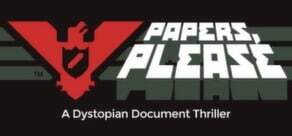What We Think
Papers, Please is one of the most thought-provoking and sneakily fun games in recent memory. The latest from Lucas Pope (whose previous efforts include Helsing’s Fire for iOS) addresses numerous social issues in an organic way without becoming obnoxious or devolving into lazy tokenism, and it manages to accomplish all of that within the context of a paradoxically entertaining bureaucracy.
For the uninitiated, Papers, Please is a paperwork simulator. You play as a border control agent of the pseudo-Soviet nation of Arstotzka, stamping passports and detaining civilians like it’s your job (which it is). You pick up snippets of people’s lives as they drift through your small phone booth of a world, so that whatever happens to be on their minds inevitably ends up on yours.
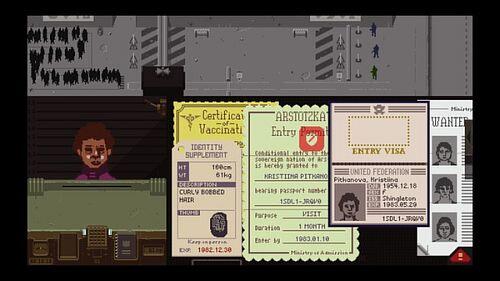
System Crash
The irony is that you’re probably not going to care. Papers, Please mimics the apathy of individuals within a large social apparatus, reminding us that the structure is often more malicious than the agents that comprise it.
The narrative is set against a satirical dystopian backdrop with creative elements that are straightforward yet evocative. The art is a minimalist collection of pixels that feels appropriate for a game that takes place in 1982, while the low-register, ominous soundtrack heightens the sense of foreboding in serving a totalitarian government. Office space sound effects bring the world to life – the shuffle of papers, a rising shutter, the satisfying ka-thunk of a stamp – and establish the routine that defines your days in Arstotzka.
The gameplay similarly strips away pretense and turns every encounter into a potential moral conundrum. A new applicant enters your booth, and you have to determine whether or not that person meets the requirements for admission. Follow the rules and you’ll hand good people over to the police only to discover that people with valid forms turn out to be terrorists.
The Lives of Others
What separates Papers, Please from other titles that purport to offer meaningful moral choice is Pope’s keen understanding of ways in which moral relativism is actually relative. Games like Bioshock offer ‘good’ and ‘evil’ decisions that are so opposite and obvious as to make the options irrelevant, while more nuanced games like Mass Effect usually offer the illusion of choice, presenting the same cut scenes with token nods to player agency.
Real life is more ambiguous. We’ll sneak a friend through the velvet rope, but we’ll seldom extend the same courtesy to a stranger. Maybe that stranger is well meaning, but how are we supposed to know?
Papers, Please captures that contextual reality and then pressurizes it with short days and long expectations. Your meager pay is based on the number of people you process, building tension as you weigh the relative merits of bribery. You want to scan documents as quickly as possible, but too many mistakes will draw fines and prison sentences that take food and shelter away from your impoverished family.
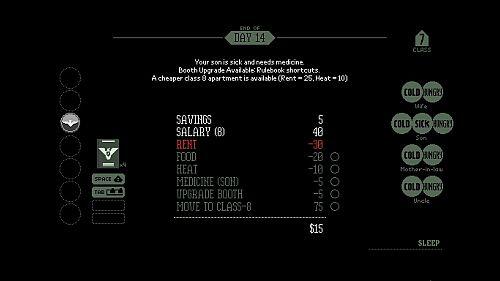
You Can’t Please Everyone, But You Can Please Some People Some of the Time
The goal is to make enough money to keep going, hopefully without doing anything that will make you hate yourself for the sake of employment. Pope doesn’t make it easy. Like any competent bureaucracy, Papers, Please is overstuffed with arbitrary rules that guarantee that decent people will be punished while offering less scrupulous people (like you) countless opportunities to manipulate the system.
It’s effective because it parallels the haphazard nature of social controversy. You don’t normally have to have a stance on drug smuggling, right up until you’re forced to make an impulse decision when someone shows up with contraband on the scanner. Does it make you uncomfortable to strip search citizens to verify that everyone’s private parts match his or her documentation? Does it bother you enough to override the pay cut and the sting of criticism for a job poorly done?
What if every dollar is essential?
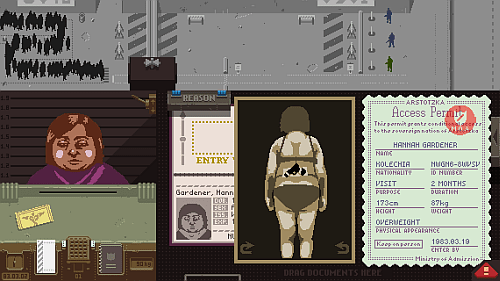
The steady flow of people allows Pope to incorporate a limitless array of social concerns. Entrants carry themes ranging from the obvious – border security in a post 9/11 context – to the unremarkable, while other topics – everything from transgenderism to human trafficking – are present simply because those are issues that crossed your desk on Monday.
Yet at its core, Papers, Please is about none of those things. The various deeds you’re asked to perpetrate in the name of security are so many bullet points on a hot button checklist, things that happen within the world of the game that have little to no bearing on your employee evaluations or your standard of living.
That Hand That Wields The Rubber Stamp
Papers, Please is instead about the job, and the ways in which seemingly black and white moral decisions are often the result of random circumstance and human error. Sometimes, rejection happens because someone misread a number on a piece of paper. Sometimes it happens because the clerk was in a bad mood that day rather than because we did something wrong.
It humanizes the people on the other side of the gate and gives the game a more universal resonance. The metrics of success – food, heat, rent, and etc. – are the few signifiers that cut across every demographic, and anyone who’s ever held down a miserable job with overbearing bosses will be able to relate to those motivations.
That’s why the lessons of Papers, Please could apply equally well to any codified bureaucracy with fallible human interpreters. It’s as much a critique of middle management capitalism as it is of communism, to the point that it would be just as powerful if it were set in an RMV, a school admissions office, or a health clinic.
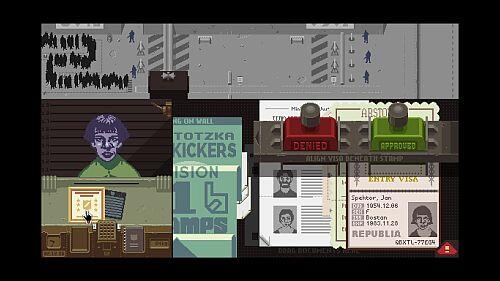
Mistakes? We don’t make mistakes
It makes Papers, Please borderline radical, positing that mistakes happen (and lives get ruined) because the system is designed to allow it. It’s an amoral arbiter, loyal to its cold internal mechanisms rather than the warm imperatives of living. If the problem is the system, rather than the people, then it follows that the system would have to be fixed to allow compassionate considerations to matter.
Papers, Please stops well short of anything prescriptive. It crafts scenarios, the resulting interpretations likely reflecting the player’s own ideology. Even so, the game recognizes that randomness can be explained (or at least understood). The process demonstrates how the experiences of bureaucrats in Soviet Arstotzka are not so dissimilar from our own.
That’s why a silly game about stamping passports in a fictional totalitarian regime can speak to a generation of gamers raised after the Cold War ceased to be a reality. Papers, Please is one of the best games of 2013, a narrative and creative triumph with a dark sense of humor that demonstrates how interactive systems can explore human psychology.
[xrr rating=”4.5/5″]
Papers, Please – Official Site
Learn more at Lucas Pope’s site for Papers, Please
Get Papers, Please on Steam
Get Papers, Please at Gog.com
Watch the official trailer for Papers, Please:


